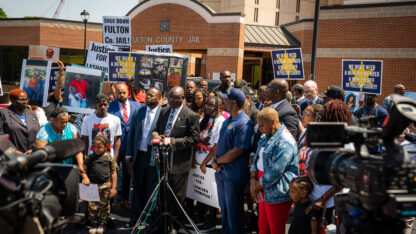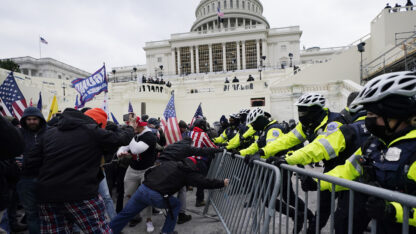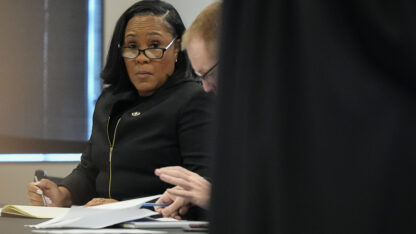Final report from Georgia election investigation remains under wraps for now
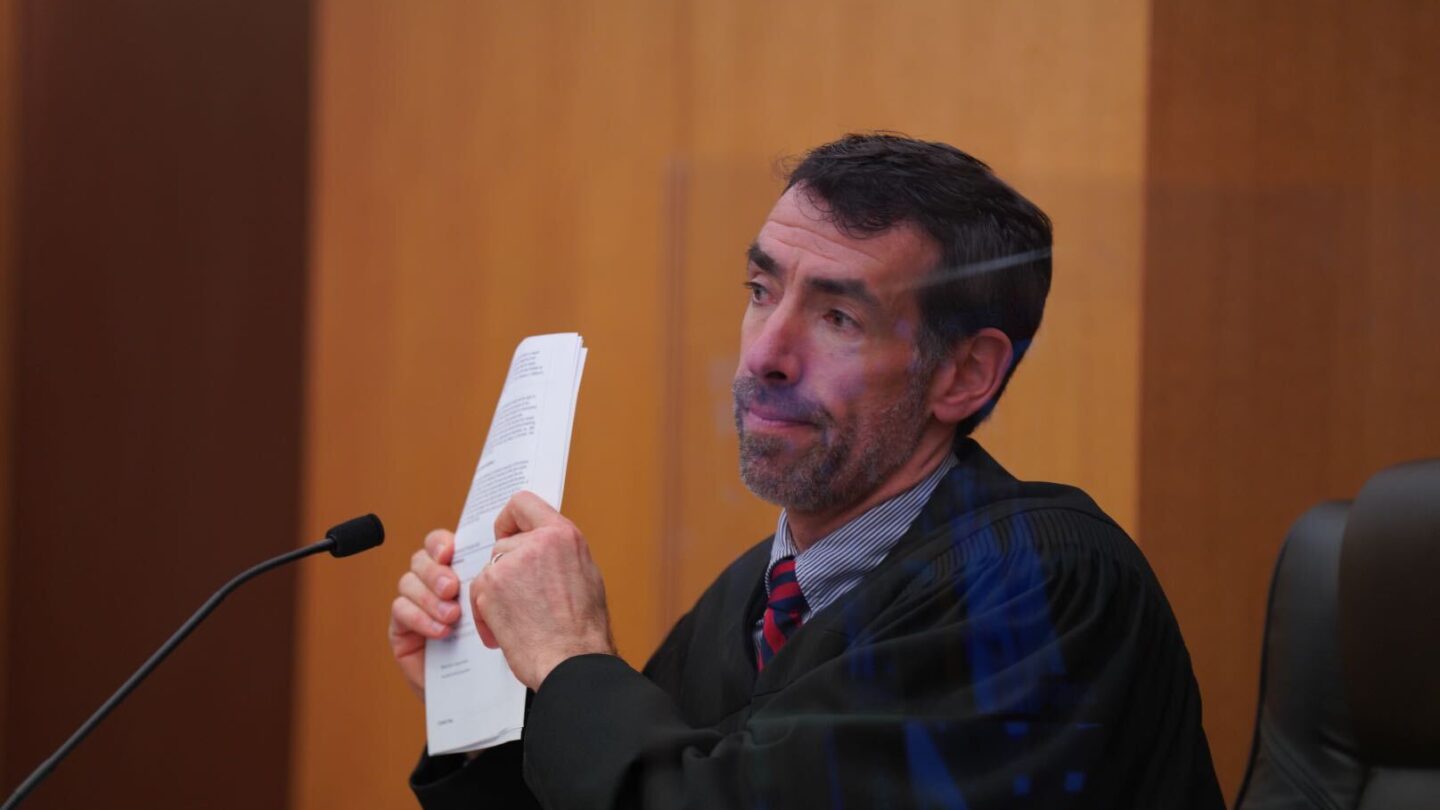
Updated January 24, 2023 at 4 p.m. ET
One year ago, Fulton County District Attorney Fani Willis asked a judge to convene a special grand jury, saying she had reason to believe the 2020 election in Georgia had been “subject to possible criminal disruptions.” Now, after hours of closed-door testimony from 75 witnesses over eight months, that special grand jury has concluded its work and a judge is deciding whether, when and how to release the panel’s final report.
Fulton County Judge Robert McBurney, who has overseen the investigation from the start, heard arguments on Tuesday about the report’s release. The report may include recommendations for criminal charges, which Willis could decide to pursue by asking a standing grand jury to issue indictments – which could happen as soon as this week.
Willis is asking McBurney to keep the report under wraps – at least for now.
“We want to make sure that everyone is treated fairly, and we think for future defendants to be treated fairly, it’s not appropriate at this time to have this report released,” she told the judge in rare public comments on the investigation.
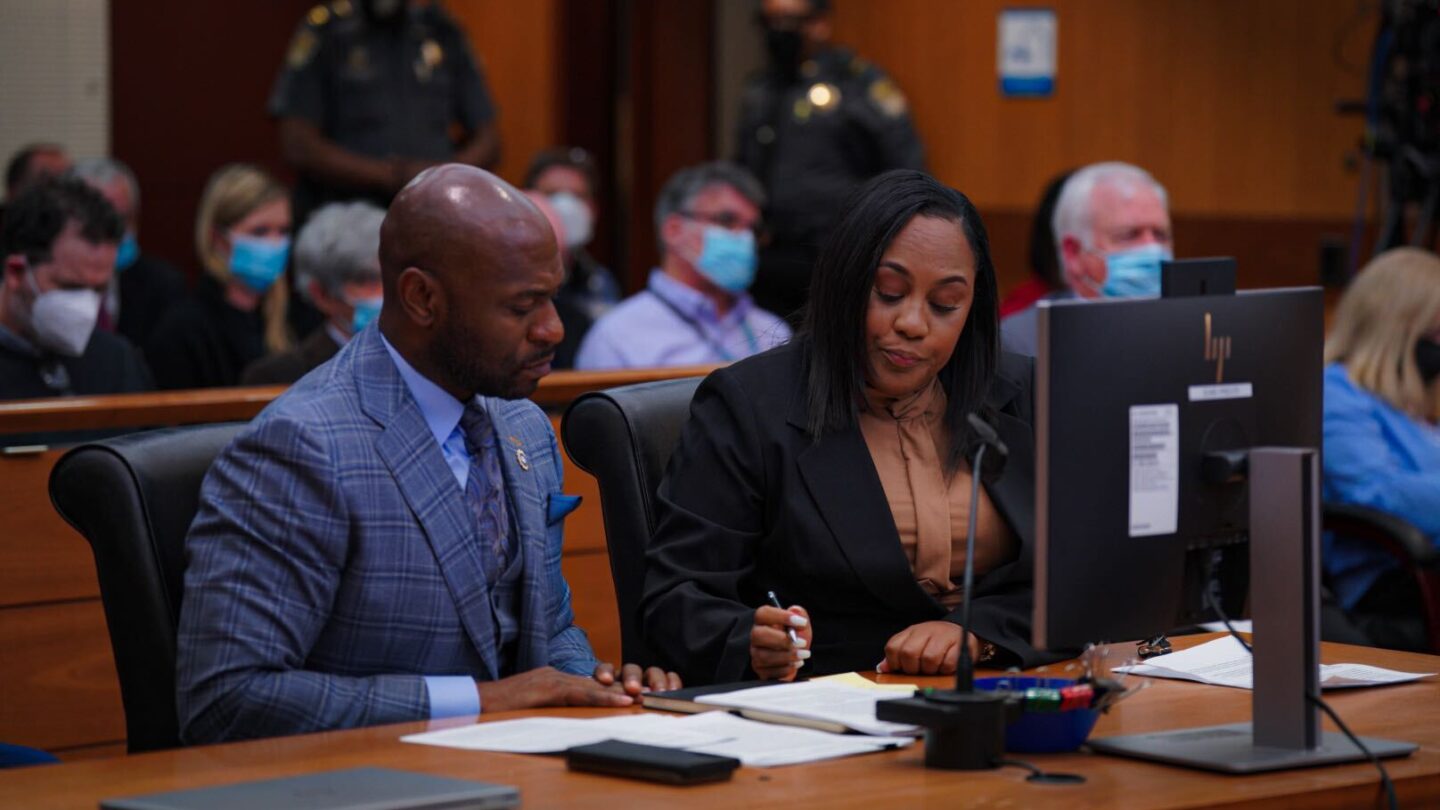
Prosecutors argued that the time to figure out what to do with this report is after Willis announces whether she is pursuing any criminal charges. Willis says that decision is “imminent.”
A coalition of media outlets, including the Atlanta Journal-Constitution, the Associated Press and the New York Times, is urging the judge to release the report, unredacted.
“The public interest in the Report is extraordinary,” lawyers for the news outlets wrote in a brief filed Monday. “The Court should file the Report in the public docket and publish it… as the special purpose grand jurors have requested.”
The court did not hear from lawyers for any of the potential targets of the investigation or witnesses, who may have found it difficult to argue for redactions without having seen the report.
“It’s a question, in my view, not of if, but of when,” says legal scholar Norm Eisen, who’s studied the investigation extensively. “If I were the D.A. I would want the judge to sequence the release of the report with the indictments.”
The judge will have to consider a tangle of Georgia code, murky legal definitions and court precedent, as well as weigh the public interest with any conflicting interests of prosecutors, witnesses and subjects of the investigation. Special grand juries are relatively rare, so there is not extensive precedent to lean on.
“So I think the bottom line is Judge McBurney has to answer whether this is a report he mandatorily has to release to public or is it something else under Georgia law – and is there any obligation or need on his part to redact any of the information that’s in that report,” says Anthony Kreis, a law professor at Georgia State University.
McBurney told the lawyers that his decision won’t be a simple one – and he will take some time to think on it before releasing an order. Should he decide the report should be released, McBurney said it won’t likely be released immediately with his decision.
In a statement released Monday to multiple media outlets, Trump’s Georgia-based legal team wrote that they won’t appear in court on Tuesday, saying the former president was never subpoenaed or asked to voluntarily appear before the special grand jury.
“We can assume that the grand jury did their job and looked at the facts and the law, as we have, and concluded there were no violations of the law by President Trump,” wrote attorneys Drew Findling, Marissa Goldberg and Jennifer Little.
It’s not known whether the jurors recommend charges for Trump or anyone else.
“I don’t think there’s anything anybody can read in one way or the other,” Kreis says. “Not being called (to testify) is kind of a neutral observation.”
The investigation was spurred by Trump’s call to Georgia Secretary of State Brad Raffensperger, pressuring him to “find” 11,780 votes for him.
The 26-member panel also examined plans to organize a fake slate of electors for Trump and other attempts to interfere with the election, including targeting election workers and spreading false conspiracy theories about widespread election fraud.
Legal experts say Willis is likely looking at potential violations of specific Georgia codes, like criminal solicitation to commit election fraud.
Jurors heard testimony from dozens of figures in Trump’s inner orbit, often after lengthy court fights, including former White House chief of Staff Mark Meadows, Trump’s onetime personal lawyer Rudy Giuliani, and U.S. Senator Lindsey Graham (R-S.C.).
Other witnesses included Raffensperger and Georgia Republican Gov. Brian Kemp, who both brushed off entreaties from Trump and his allies.
Many of the events scrutinized by the special grand jury have also been the subject of other probes, including investigations by the U.S. Department of Justice and the select committee in Congress that examined the January 6th insurrection.
Unlike a standard grand jury, a special purpose grand jury is dedicated to just one case and can meet for much longer. But if prosecutors choose to pursue any criminal charges, they would need to separately ask a standard grand jury to issue indictments.
The decision would be a pivotal moment for Willis, a longtime prosecutor who Fulton County voters elected as district attorney in 2020.
A fresh Fulton County grand jury was seated earlier this month, and hears cases twice a week. Even if prosecutors move quickly to secure indictments this week or in the coming days, it would still take months or even years for the cases to work their way through the justice system.
